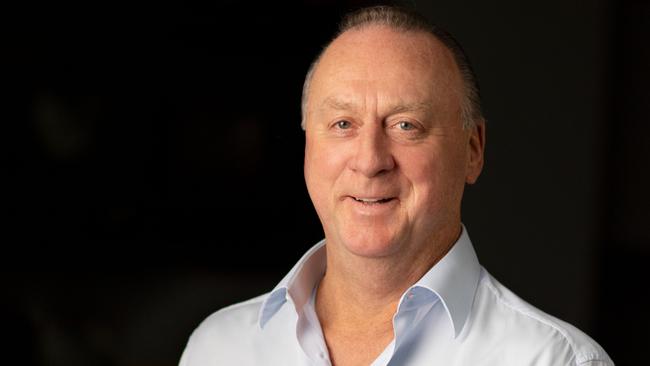Step up support or lose critical minerals processing offshore, says MinRes boss
Mineral Resources boss Chris Ellison has urged the federal government to quicken the pace of its critical minerals strategy.

Mineral Resources boss Chris Ellison has urged the Albanese government to quicken the pace of its critical minerals strategy, saying Australia was already losing out in the global competition to attract downstream processing opportunities through lack of government support.
MinRes this week announced a $1bn investment to acquire a share in two Chinese lithium refineries owned by global giant Albemarle, which is also MinRes’ partner in a WA mine and lithium hydroxide plant.
Speaking after MinRes delivered its half-year financial results on Friday, Mr Ellison said the company would prefer to be building more downstream manufacturing plants in Australia, but the company had “no chance” of convincing its partners to do so without additional support from the federal government.
“It‘s just pure mathematics – speed to market. We need to convert our (lithium concentrate) to hydroxide, we don’t want to be just a primary producer,” he said.
“I have not lost my desire to build whatever I can here in Australia, and the reason I want to do that is total control of the quality. We can manage our plants here better than we can manage them anywhere.”
Prime Minister Anthony Albanese told the National Press Club on Wednesday he believed Australia needed to invest more in downstream processing, saying he wanted his government to help build a battery manufacturing industry to make the most of Australia’s resources industry.
“We need to not just dig it up. I want to make sure we use the lithium and nickel and other products we have to make batteries here,” he said.
Mr Ellison said he was pleased the federal government had indicated it was working towards the introduction of a support package for would-be manufacturers, but said it needed to act quickly given the level of support already on offer from governments in Europe and the US.
The MinRes boss said any package should include measures to streamline approvals, extend low-cost loan programs and instant tax write-off packages.
“Low-cost long-term loans would be helpful to convince my JV partners to join with me in what we want to do. They they‘re being offered grants to build in Europe, to build in the US, and to build in Vietnam,” he said.
“So we need the Australian government to come to the party on that. Otherwise, I have zero chance of getting these guys through the door.”
Mr Ellison said the company estimated that its would-be partners could build a lithium refinery in China for about $US600m – less than half the cost of Albemarle’s Kemerton refinery in WA.
He said MinRes believed it could build a refinery in Australian for about $US850m with the right partner, but tax or other incentives were needed to make sure that investment came to Australia rather than go elsewhere in the world.
Mr Ellison’s comments mirrored those of BHP boss Mike Henry this week, who also said Australia risked losing out on the race to capture value in the critical minerals supply chain – despite its wealth of natural resources – if policymakers did not move quickly to attract investment.
“Countries are recognising that we’re at a point in time now where there’s this amazing opportunity on offer to capitalise on the once in many generations energy transition,” Mr Henry said.
“That race will be won or lost by countries in the coming few years, where they are serious about putting in place the policies that attract capital and momentum to build around the resource development and jurisdictions.”
Mr Ellison told reporters on Friday the company’s decision to invest in Chinese lithium conversion plants was a “calculated risk”, despite easing tensions between Beijing and Canberra.
“There is no question there is a risk for an Australian company operating in China, but we think that we can manage that in the short to medium term,” he said.
MinRes delivered a $390m after-tax profit for the first half of the year, on $2.35bn in revenue and underlying earnings before interest, tax, depreciation and amortisation of $939m – up more than 500 per cent.
The improved result was driven by soaring earnings from the company’s lithium division, which delivered about 80 per cent of the company’s EBITDA for the first half of the year.
While MinRes has long focused its strategy on the WA mining sector, where it runs iron ore mines and a big mining services business, Mr Ellison said MinRes was now looking offshore for opportunities for growth.
It was close to signing mining services deals overseas, he said, and was also looking at acquiring lithium and iron ore projects outside of Australia.
MinRes shares closed down 12c to $84.91 on Friday.

